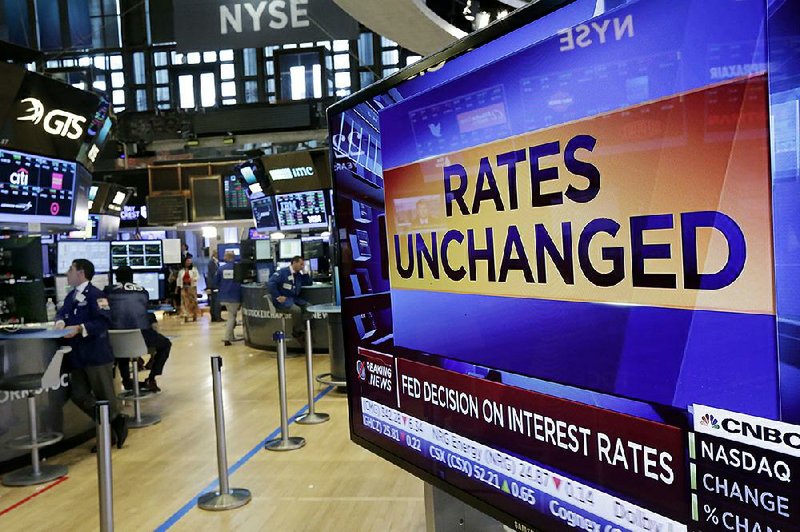WASHINGTON -- The nation's business economists believe that the Federal Reserve's long-awaited move to start reducing its trove of bond holdings will push long-term bond rates higher, but most think the impact will be fairly modest.
The latest survey of the National Association for Business Economics, released Monday, found that 41 percent of participating economists expected rates on the 10-year Treasury note will rise by just one-half percentage point or less. About one-fourth saw an increase of three-fourths of a percentage point to a full percentage point in the 10-year note while only 11 percent saw rates going up more than 1 percentage point over the extended period that the Fed is reducing its holdings.
The policy survey summarized the responses of 184 of the association's members surveyed from July 18 to Aug. 2.
The Federal Reserve is expected to announce at its September meeting a starting date for the reduction in its $4.5 trillion balance sheet, which has grown five-fold since right before the 2008 financial crisis. The increase came as the central bank bought Treasury bonds and mortgage-backed securities in an effort to assist the ailing economy by lowering long-term interest rates to pull the country out of a deep recession.
The Fed has said the bond reductions will take place gradually over a number of years, and the survey found that private economists generally agree with Fed officials who think there will be little market reaction.
"The overall view of the panel is that the likely interest-rate impact of the Federal Reserve's balance sheet normalization is fairly benign," said National Association for Business Economics President Stuart Mackintosh.
The survey found that 53 percent of economists responding still think the Fed will raise rates for a third time later this year. There has been growing uncertainty about a third rate increase given that inflation is currently falling further from the Fed's 2 percent target. The Fed raised rates by a quarter-point in March and June with the benchmark rate now at a still-low level of 1 percent to 1.25 percent.
In terms of predicting who the next Fed chairman will be, 17 percent said they expected that President Donald Trump will tap Chairman Janet Yellen to serve another four-year term when her current term ends in February. Nearly half said they believed Trump would pick former Goldman Sachs executive Gary Cohn, who is currently head of the president's National Economic Council.
On the prospects that Congress will pass "meaningful" tax code changes this year, the economists assigned a low probability of only 10 percent and only a 15 percent chance next year. If such reform is passed, 53 percent of the economists said the changes would add less than 1 percentage point to economic growth over the next 10 years.
Business on 08/22/2017
